Buy Evra Patches online. Fully regulated
buy Evra Patches online are contraceptive patches intended for woman of fertility age. Evra patches contain a combination of hormones norelgestromin and ethinyl estradiol. They are used to prevent pregnancy.
Only one transdermal patch is to be worn at a time.
Each used transdermal patch is removed and immediately replaced with a new one on the same day of the week (Change Day) on Day 8 and Day 15 of the cycle. Transdermal patch changes may occur at any time on the scheduled Change Day. The fourth week is transdermal patch-free starting on Day 22.
A new contraceptive cycle begins on the next day following transdermal patch-free week; the next EVRA transdermal patch should be applied even if there has been no withdrawal bleeding or if withdrawal bleeding has not yet stopped.
Under no circumstances should there be more than a 7-day transdermal patch-free interval between dosing cycles. If there are more than 7 transdermal patch-free days, the user may not be protected against pregnancy. A non-hormonal contraceptive must then be used concurrently for 7 days. The risk of ovulation increases with each day beyond the recommended contraceptive-free period. If intercourse has occurred during such an extended transdermal patch-free interval, the possibility of pregnancy should be considered.
EVRA should be applied to clean, dry, hairless, intact healthy skin on the buttock, abdomen, upper outer arm or upper torso, in a place where it will not be rubbed by tight clothing. EVRA should not be placed on the breasts or on skin that is red, irritated or cut. Each consecutive transdermal patch should be applied to a different place on the skin to help avoid potential irritation, although they may be kept within the same anatomic site.
The transdermal patch should be pressed down firmly until the edges stick well.
To prevent interference with the adhesive properties of the transdermal patch, no make-up, creams, lotions, powders or other topical products should be applied to the skin area where the transdermal patch is placed or where it will be applied shortly.
It is recommended that users visually check their transdermal patch daily to ensure continued proper adhesion.
The EVRA transdermal patch should not be cut, damaged or altered in any way as this may compromise contraceptive effectiveness.
Used transdermal patches should be discarded carefully in accordance with the instructions given in section 6.6.
What is Evra?
Evra patches are very similar to that of combined oral contraceptives, but in this treatment, your hormones are continuously released into the bloodstream through the skin. Each Evra patch contains a 6 mg dose of norelgestromin and a 600 mcg dose of ethinyl estradiol to prevent ovulation. These patches also thicken cervical mucus and disrupt the lining of the endometrium. Provoking that the sperm cannot penetrate the uterus and that the fertilized ovum cannot become fertilized.
Above all, it is important to remember that it must be changed every 7 days and it is advisable to try to respect the same schedule. The Evra patch sizes are of a contact surface of about 4.5 x 4.5 cm.
How does it work?
What are the benefits of taking it?
The Evra patch is easy and convenient to use since it should only be replaced 3 times a month, as these patches contain a hormonal dose for one week. The use of this treatment does not generate weight gain or facial hair. While using the Evra patches you can lead a normal life since they do not come off during the shower.
It should be noted that although Evra patches prevent pregnancy since they are almost 100% effective. However, this method of contraception does not protect against sexually transmitted diseases, such as HIV. The effectiveness of birth control patches is not reduced in the event of gastrointestinal problems or vomitin

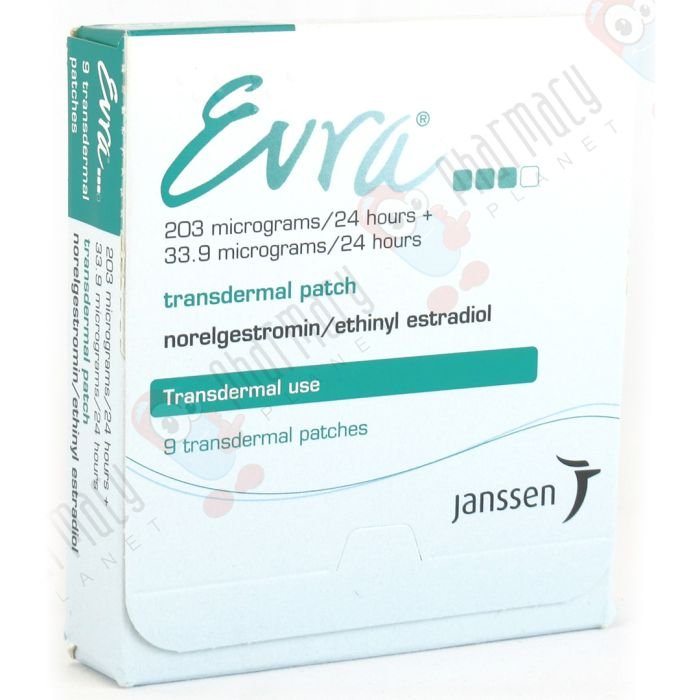
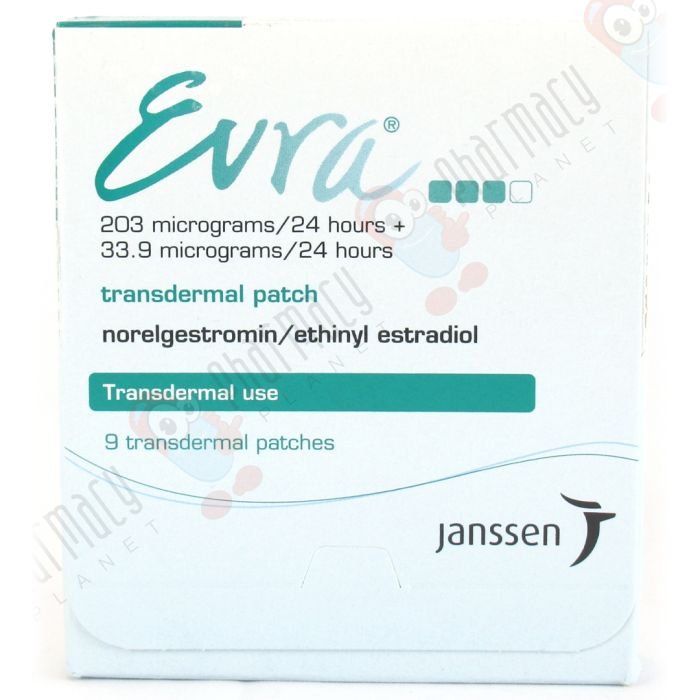
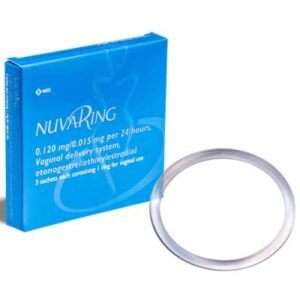

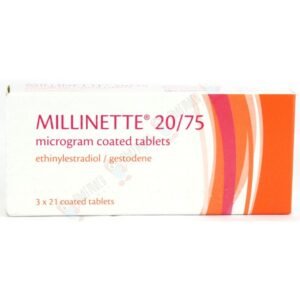
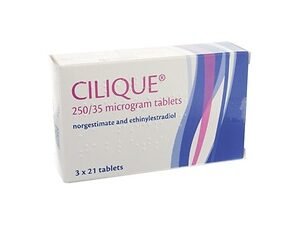
Reviews
There are no reviews yet.